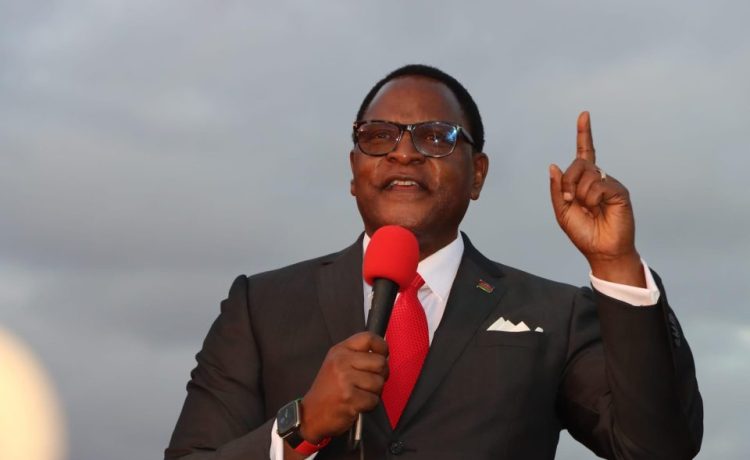In the intricate tapestry of Malawi’s political landscape, the quest for unity and inclusivity remains a pressing imperative. President Dr. Lazarus Chakwera, since assuming office, has demonstrated a resolute commitment to fostering a spirit of non-discrimination in serving the people of this beloved nation. His outreach to constituencies represented by opposition parties, reflect a transformative leadership style that seeks to transcend political affiliation in favor of prioritizing the welfare of all Malawians.
At a time when political polarization threatens to undermine national unity, President Chakwera’s approach serves as a beacon of hope. His emphasis on inclusivity is not merely an idealistic aspiration; it is a practical necessity for a country grappling with multifaceted challenges ranging from economic hardship to food insecurity. By advocating for a government that serves all its citizens, regardless of their political background, President Chakwera is laying the groundwork for a more harmonious and prosperous society.
Today’s maize distribution in Mwanamveka Constituency, a region dominated by the opposition Democratic Progressive Party (DPP), exemplifies this commitment to non-discrimination. By sending his deputy, Dr. Michael Usi, to deliver much-needed food assistance to communities affected by hunger, President Chakwera has signified that the needs of the people should supersede partisan divides. It is a profound statement that government resources and aid should be allocated based on need, not political allegiance—an ethos that is crucial for nation-building.
In his address during the maize distribution, Dr. Usi’s remarks about the absurdity of political divisions echo a sentiment that resonates deeply within the fabric of Malawian society. Leaders must prioritize their duty to serve the populace as a whole, rather than allowing political identities to dictate the terms of engagement with communities facing hardship. It is this high-road approach—eschewing discrimination in favor of collaboration—that defines true leadership.
Embracing non-discrimination is not merely a pragmatic response to current socio-economic challenges. It is a moral imperative rooted in the principles of democracy and human dignity. A functioning democracy thrives when citizens feel valued and included in the decision-making processes that affect their lives. By championing non-discrimination, President Chakwera is fostering an environment where every Malawian is given a voice and the opportunity to participate fully in the nation’s development journey.
Furthermore, this inclusive approach has the potential to heal historical wounds created by past leadership styles, particularly that of professor Peter Mutharika, characterized by favoritism and exclusion. By creating opportunities for dialogue and cooperation, President Chakwera is promoting a culture of understanding and respect among diverse political factions. This shift can strengthen democratic governance, as citizens begin to see their leaders not as adversaries, but as partners in the collective pursuit of progress.
President Chakwera’s embrace of non-discrimination in serving the people of Malawi stands as a commendable approach to leadership—one that prioritizes unity over division, service over self-interest, and compassion over indifference.













